
14 Things No One Tells You About Aging

Medically Reviewed by Sabrina Felson, MD on August 16, 2022

Lots of Know-How
1/14
They’re called the golden years for a reason. Getting older has its perks. For one, you’re good at using what you’ve learned. This is called crystalized intelligence, and it keeps getting better, even when you’re 65 or 70.

Mr. Nice Guy
2/14
Turns out you might not be a grumpy old man (or woman), after all. You’ll probably get more agreeable as you age, at least through your 60s. You’re also likely to be happier and less inclined to get angry. Scientists haven’t figured out exactly why this happens, but they do have some theories. Older people might control their emotions better, and focus more on how to make the most of life.

Play Well With Others
3/14
You’re more in tune with other people’s emotions in your 40s than at any other time in your life. That insight into how others think and feel can make living with your loved ones easier and help you get along better with your coworkers, too.
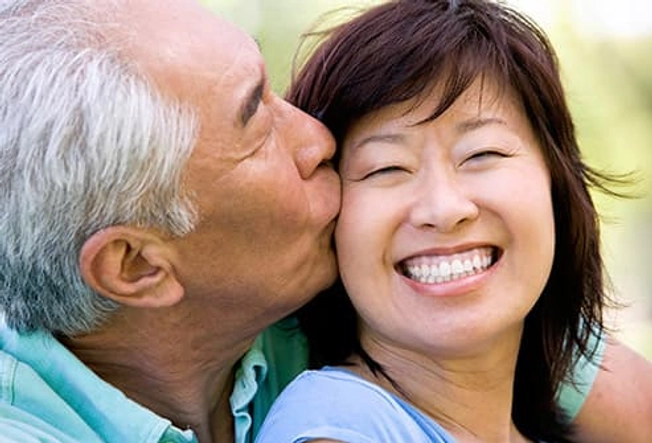
Better Sex
4/14
Older women may have sex less often than when they were younger, but apparently they make it count. In a study of women 40 and over, researchers found that sexual satisfaction improved with age. Women over 80 were more likely than those between 55 and 79 to say they were satisfied during sex.
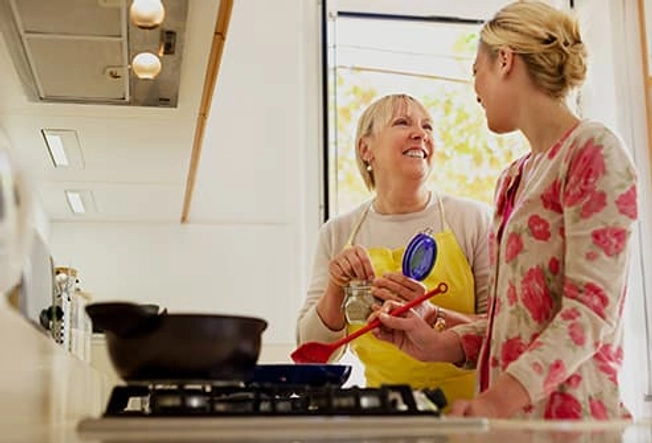
A Taste for Life
5/14
As you age, medications, illness (colds, flu, gum diseases, etc.) and allergies all can change your sense of smell and taste. And that can affect your diet and health. If you find things need to be spiced up, try some olive oil, herbs like rosemary and thyme, garlic, onion, peppers, or mustard. Just stay away from the salt.
Featured
- Excessive Daytime Sleepiness? What to Know
- The Facts About This Advanced Stage of Liver Disease
- Slideshow: A Visual Guide to Psoriasis
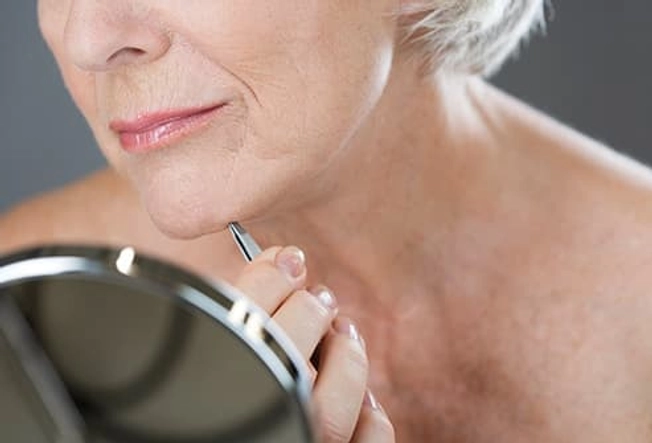
What’s That Doing There?
6/14
Around the time the hair on your head starts to disappear, it can show up in the strangest places. This can mean large hairs in older guys’ noses and ears. Older women may notice small hairs on their chins. This is all caused by changes in our hormones.

Rise And Shine
7/14
There’s a good chance you’ll become the morning person you’ve always wanted to be — in your 60s. Our sleeping patterns can shift as we age, so we get sleepier earlier and wake up earlier. That seems to work out well. One study showed that even though folks over 65 tend to wake up during the night, most said they regularly get a good night’s sleep.
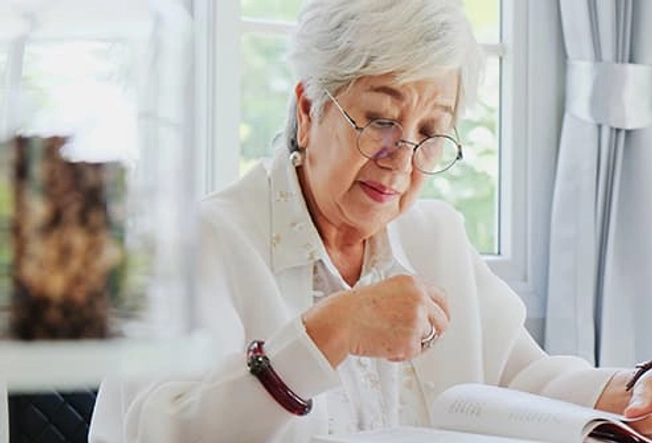
Bye-Bye Migraines
8/14
Once you hit your 70s, those migraines you may have had much of your life may go away. Only 10% of women and 5% of men over 70 still report migraines. Even better news: If you do have a migraine, it may not actually come with the headache. As people age, some may experience migraines as visual or sensory disturbances without pain.

Don’t Quit Your Day Job
9/14
Early retirement might not be the best thing for your health — unless you have a fun second career. A study called the Longevity Project found that people who work hard at a job they enjoy live the longest. That, along with good friends and a good marriage, could be the key to sticking around a while.
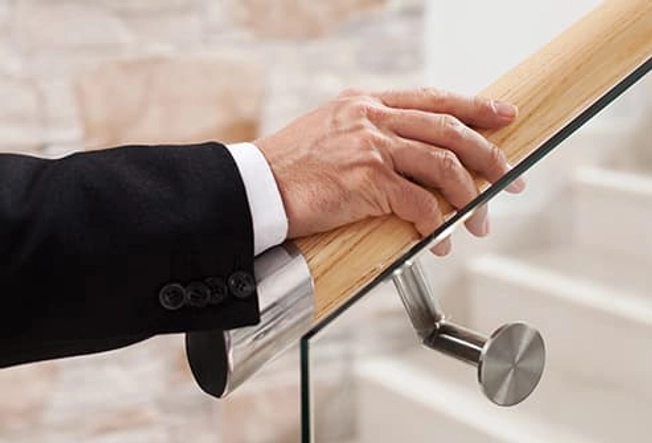
Fear Is Not Your Friend
10/14
You may worry more about breaking bones as you age. One study found that about a third of adults over 65 have that fear. And it’s understandable, because falls are the leading cause of injuries for older people.

Self-Confidence
11/14
Self-esteem soars as you age, studies show, and increases with wealth, education, good health, and employment. But it takes a dip after 60. That may be because people begin to have health issues and start searching for a new sense of purpose following retirement. With increasing life spans, healthier lifestyles, and working to an older age, we may see that change.

Less Stress
12/14
Baby boomers and older adults report less stress than their younger counterparts, according to the American Psychological Association’s annual Stress in America report. That doesn’t mean, it goes away. Health and money problems still crop up. But, the APA says, 9 of 10 older adults say they’re doing enough to manage it.

Weight of the World
13/14
The longer you’re alive, the more gravity brings you down. The spaces between the bones in your spine — called vertebrae — get closer together. That can make you about an inch shorter as you get older.
Featured
- What Is Tardive Dyskinesia? This Side Effect, Explained
- RSV Season: What to Know
- SponsoredgMG: How to Improve Muscle Function
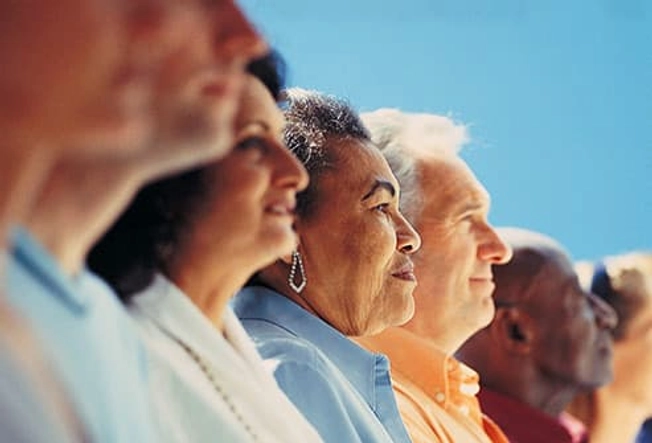
Strength in Numbers
14/14
The graying of America may be a good thing for you. Those 60 and over tend to cast ballots more than any other age group. And they’re the fastest-growing block of voters in the U.S. these days. That means more voting power on topics that matter as you age such as Medicare, Social Security, and health careSourcesUpdate History
Share
Save
View privacy policy, copyright and trust info
What to Expect With Vaccines

Stay on top of your yearly shot. They could mean the difference metween mild symptoms and ones that require hospitalzationWatch Now
Your Hands as You Age

Reviewed by Poonam Sachdev, MD on August 28, 2023
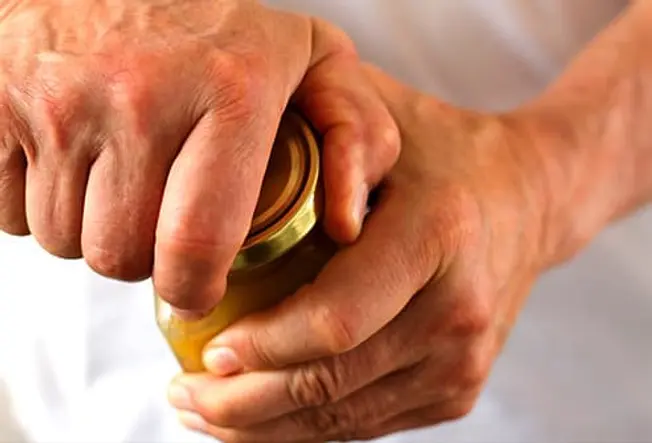
Give Your Hands a Hand
1/15
You use your hands to do so many things: tie your shoes, open jars, drive, and use your phone, to name just a few. It’s hard to do much of anything without them, but as you get older, they can get weaker and less flexible. Some hand problems can even be signs of certain health conditions. Know what to look out for so you keep them in good shape.
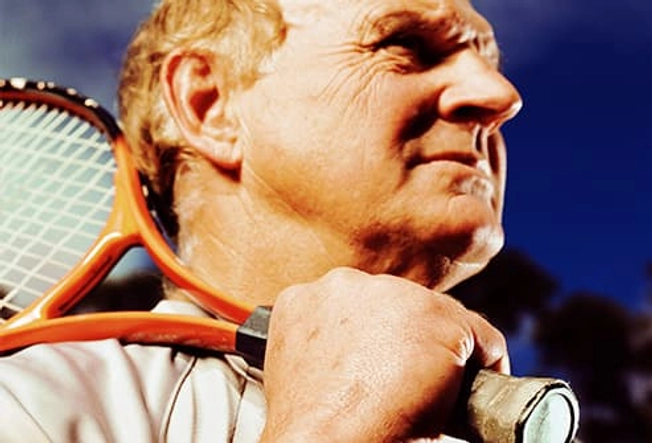
Grip Strength
2/15
You can lose this naturally as you age, especially after 65, and that can make it harder to do everyday tasks. If your grip gets weaker over time, it’s probably caused by brittle bones, arthritis, or muscle loss. If it happens suddenly, it might be a sign of a more serious problem, like diabetes, heart disease, or high blood pressure.
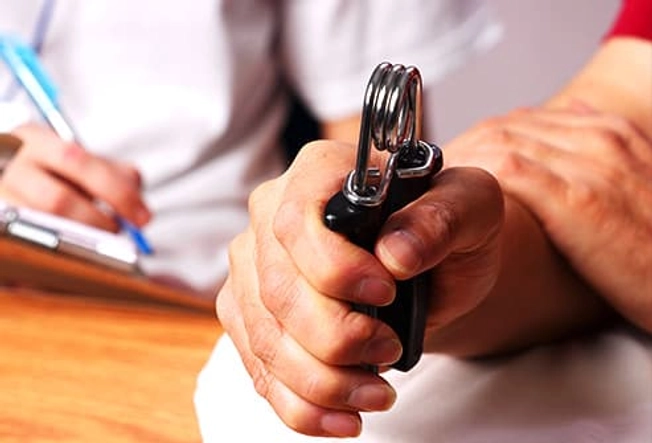
Grip Strength: Treatment
3/15
An occupational or physical therapist can test the strength in your hands and help you regain or keep it. You also can do many exercises at home. For example, you might squeeze something like a tennis ball as hard as you can for 3 to 5 seconds, then rest briefly — do that 10 times with each hand. Start with once a day or once every other day, depending on how your hands feel.
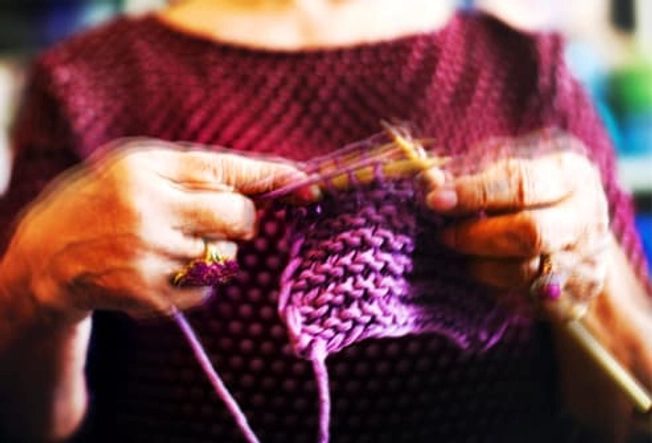
Tremors
4/15
Your hands can shake for many reasons at any age, but it’s more common after 50. Some medicines — like mood stabilizers and drugs that treat seizures or migraines — can cause it or make it worse. Anxiety, stress, low blood sugar, being tired, or having too much caffeine can, too. An “active” tremor happens when you try to use your hands. A “passive” tremor happens when your hands are at rest.

Tremors: Treatment
5/15
While it may bother you, an active tremor is usually harmless. Changes in diet and lifestyle can help — drinking less caffeine, for example. But a passive tremor can be a sign of a serious problem, including a tumor or a brain disease, such as Parkinson’s. See your doctor right away if you have these kinds of tremors.
Featured
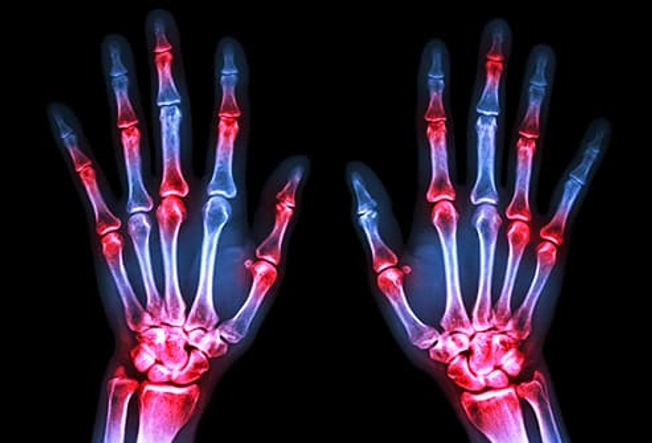
Arthritis
6/15
This inflames your joints, and it’s especially common in places where you’ve had breaks, sprains, or fractures, even if they were treated. You’re more likely to get it as you age, and over time, it can lead to pain, swelling, and loss of movement.
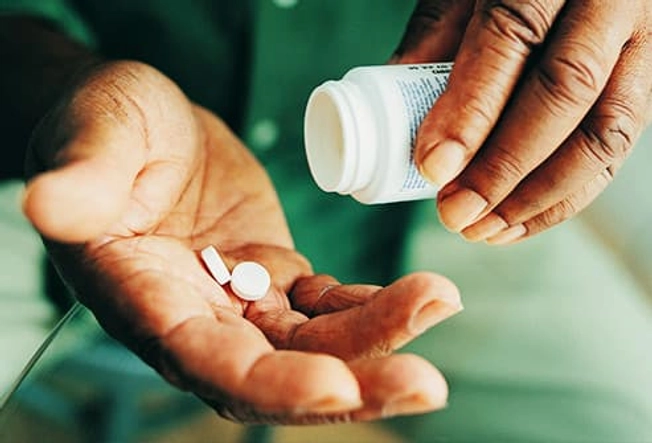
Arthritis: Treatment
7/15
Your doctor will talk with you about how active you’d like to be, and how the pain and lack of flexibility affect your daily life. They might recommend anti-inflammatories or give you a steroid shot that can ease pain and swelling for weeks or possibly months. In some cases, splints that protect your joints and keep you from overusing them can help. But wearing them too long can lead to muscle loss.
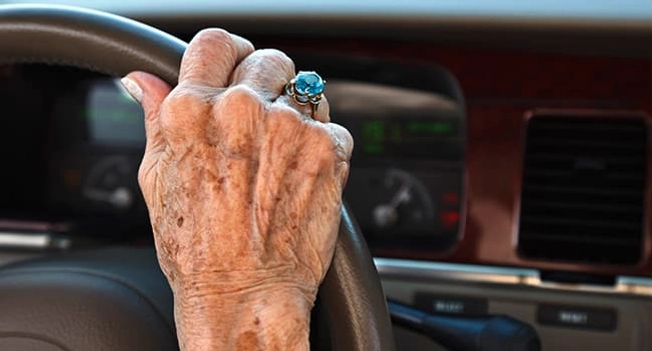
Your Skin
8/15
We’ve all seen the “liver spots” — or “age spots” — that can show up after years in the sun. As your skin ages and wrinkles, it’s harder to keep moisture in, and that can lead to dry, itchy skin. Veins become more obvious with age because you lose soft tissue. This is especially true in your hands.
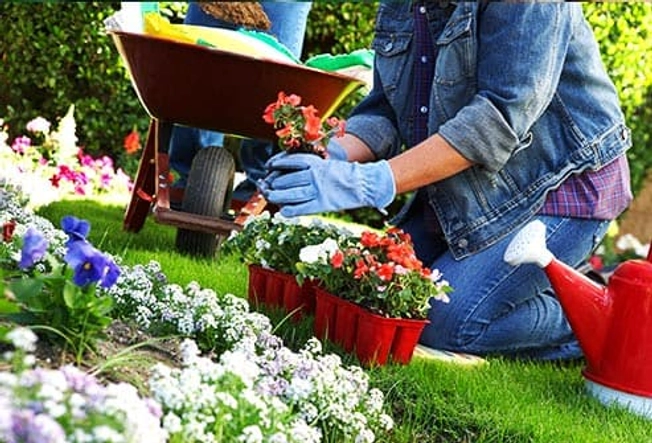
Your Skin: Treatment
9/15
Protect your hands against the sun’s rays with broad-spectrum sunscreen rated 30 SPF or higher. Wear cotton-lined gloves when you garden or clean, and choose a mild soap or cleanser that doesn’t strip your hands of their natural oils. Moisturizers and a healthy diet with plenty of vitamins, antioxidants, and omega-3 fatty acids also can help keep your skin and nails healthy.
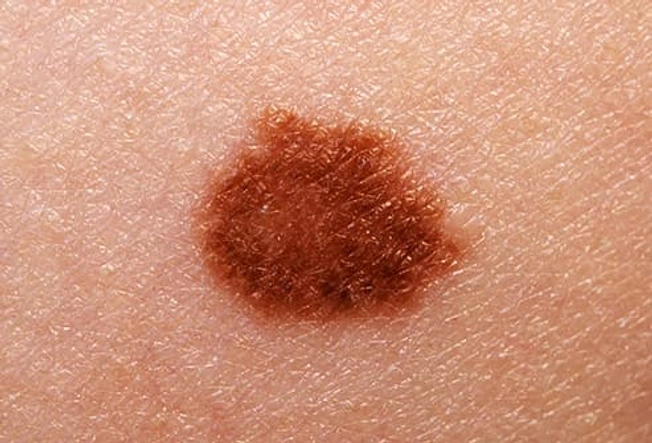
Skin Cancer
10/15
Over the years, the tops of your hands get lots of sun, which is a leading cause of this disease. A fair complexion, problems with your immune system, certain kinds of moles, and a family history of skin cancer can also raise your chances of having it.
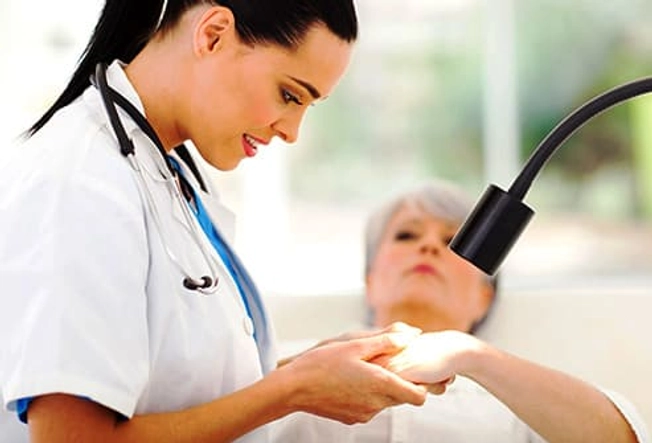
Skin Cancer: Diagnosis and Treatment
11/15
A dermatologist (a doctor who specializes in skin care) can check any unusual spots and teach you what to look for. If they find skin cancer, you’ll need surgery to take out the cancer cells. You also may have radiation or chemotherapy to kill any that are left to keep them from spreading.
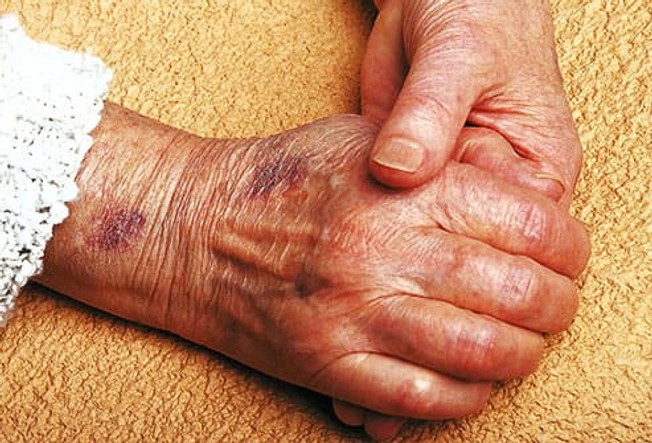
Bruising
12/15
When it’s on the back of your hands and arms, doctors call it “actinic purpura,” “solar purpura,” or “Bateman’s purpura.” A light knock can cause it, and it’s more common on thin, wrinkled, or sun-damaged older skin. You’re also more likely to bruise if you take drugs like aspirin or other blood thinners, or drink alcohol often. It starts as blotches of red that turn purple, then darken and fade. It doesn’t usually hurt, but it can last longer than a normal bruise, often a few weeks.
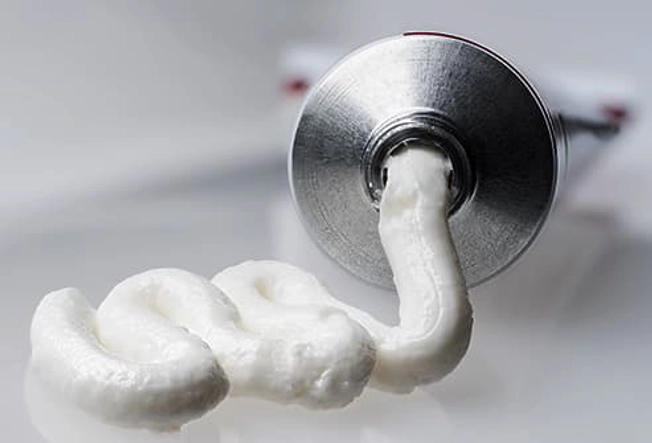
Bruising: Treatment
13/15
Protect your hands and arms when you think they’re in the line of fire: Special sleeves can help with this, or your doctor might suggest a cream or lotion to keep your skin from bruising or help make your skin thicker. If you take blood thinners and think they’re causing the bruises, talk with them about possibly changing your medication or the amount you take.
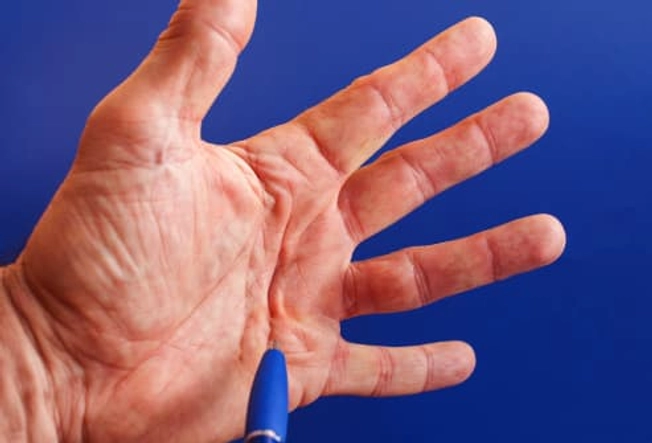
Dupuytren’s Contracture
14/15
This is when the tissue just under the skin of your hand gets unusually thick. It can cause your fingers — most often the ring and pinky fingers — to bend into your palm. You may get lumps or thick cords (like string) in your palm as well. It sometimes affects the top of your knuckles or the soles of your feet, too. Doctors aren’t sure what causes it, but it happens more often in men over 40, especially of Northern European descent.
Featured
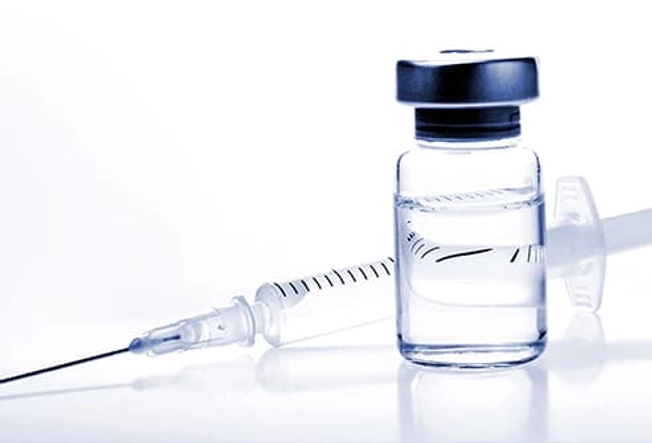
Dupuytren’s Contracture: Treatment
15/15
For many people, a mild case doesn’t cause major problems or pain, and it may not get worse, so your doctor might take a wait-and-see approach. If it is causing problems, they may suggest a type of stimulation with needles, shots, or possibly surgery to give you more movement in your hands. Treatment doesn’t always fix it completely, though, and it sometimes comes back.SourcesUpdate History
Share
Save
View privacy policy, copyright and trust info
FEATURED
- Aging With Psoriasis: Beware ‘Anti-Aging’ Products
- Mantle Cell Lymphoma: Who You Need on Your Care Team
- Expert Advice for Handling a Relapse
- Treatments for COPD, Explained
Top doctors in Sacramento, CA
Sponsored Results
TR
Dr. Thomas J. Reda, MD
24 Years Exp
(916) 299-0848View Full Profile
AG
Anupam Goel, MD
Internal Medicine, Primary Care, Preventative Medicine
26 Years Exp
(630) 474-2783View Full Profile
VT
Vital Total Health
(925) 524-7951View Full Profile
Find more top doctors on
Search
Related Links
- Healthy Aging Home
- Healthy Aging News
- Healthy Aging Medical Reference
- Healthy Aging Basics
- Preventative Care
- Senior Caregiving
- Planning for the Future
- Over Age 50 Relationships & Sex
- All Healthy Aging Topics
- Fitness & Exercise
- Health Insurance & Medicare
- Depression
- Menopause
- Eye Health
- Palliative Care
- Weight Loss & Diet Plans
- More Related Topics
Sign up for our free Good Health Newsletter
Get wellness tips to help you live happier and healthier
Subscribe
By clicking Subscribe, I agree to the WebMD Terms & Conditions & Privacy Policy and understand that I may opt out of WebMD subscriptions at any time.
Follow WebMD on Social Media
Download WebMD App


- Privacy Policy
- Cookie Policy
- Editorial Policy
- Advertising Policy
- Correction Policy
- Your Privacy Choices

- Terms of Use


© 2005 – 2024 WebMD LLC, an Internet Brands company. All rights reserved. WebMD does not provide medical advice, diagnosis or treatment. See additional information.

By using this site, you agree with our use of cookies. See our cookies NoticeManage PreferencesAccept Cookieshttps://ads.yieldmo.com/ymcas?us_privacy=&gdpr=0&gdpr_consent=&type=iframe&limit=*&lf=